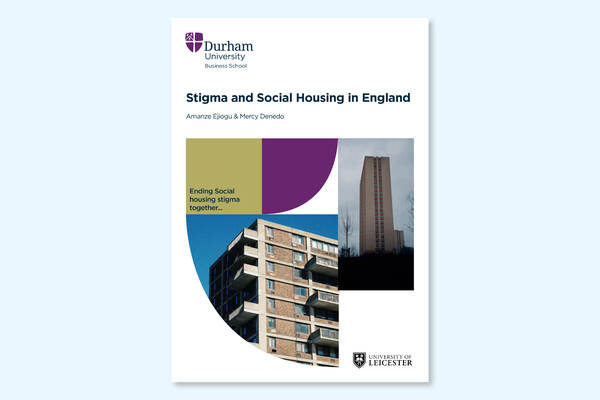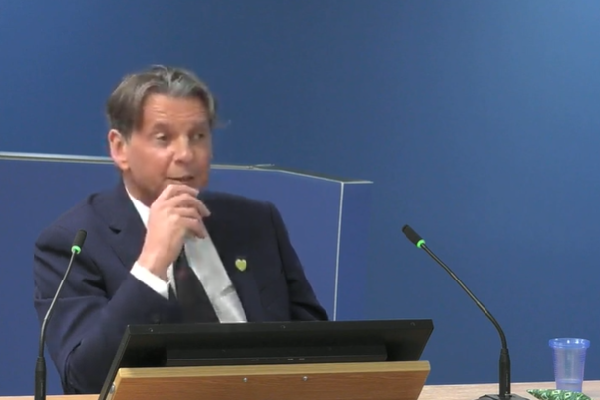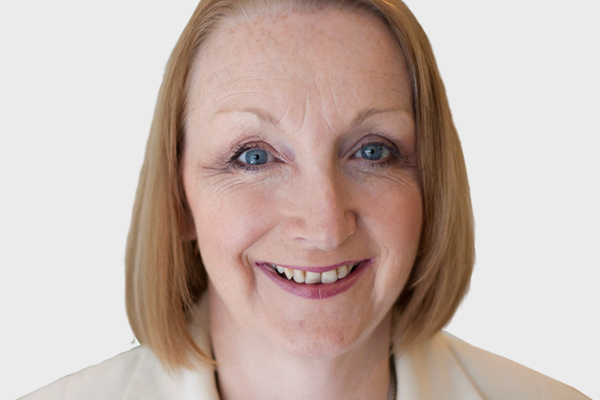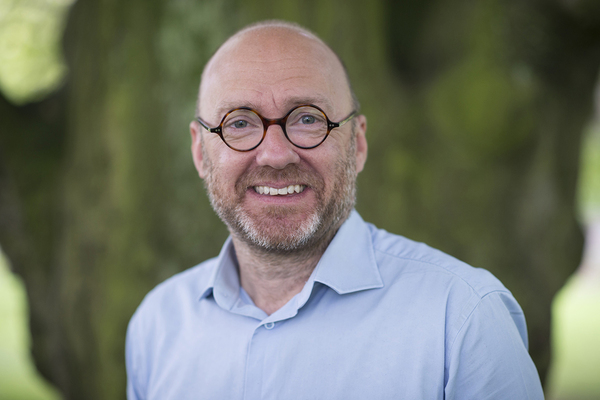You are viewing 1 of your 1 free articles

Dr Mercy Denedo, Durham University Business School, and Dr Amanze Ejiogu, University of Leicester
Paternalistic attitudes from social landlords can add to the stigmatisation of residents
Stigma comes from many sources, but paternalistic and controlling attitudes from landlords can be a major contributor. Our research seeks the way forward, write Dr Mercy Denedo and Dr Amanze Ejiogu
“Sink estates”, “underclass”, “work-shy”, “uneducated”, “lacking in aspiration”, “zones of criminality”, “benefit scroungers”, “drug-infested”, “getting nothing for something” – these are just some of the phrases that have commonly been used to describe social housing estates and their tenants over the years, and it’s a perspective that society seems to have been happy to accept. Until now.
The Grenfell Tower tragedy in 2017, in which 72 people died, was instrumental in illuminating the stigma experienced by social housing tenants as well as the ineffective and discriminatory complaint procedures in social housing.
The Social Housing Green Paper, published by the government in the summer of 2018, revealed that social housing tenants have been routinely made to feel like second-class citizens rather than hard-working, honest people and stated the need for change.
But three years later, little progress has been made.
Why should people have to face this type of stigmatisation just because they live in social housing? What is the impact of this type of stigma on the lives of social housing tenants? How is it challenged?
Seeking answers to these questions led us on a journey – meeting with residents, speaking with housing associations and landlords, advocacy agencies and government officials, and reviewing how the media typically treats this issue. This resulted in our report titled Stigma and Social Housing in England.
The majority of the social housing tenants we engaged with revealed negative experiences of being stigmatised simply for living in social housing. It was experienced in a variety of ways, through interactions with social housing providers and their contractors, homeowners and neighbours (particularly leaseholders), and leaked into other areas of their lives.
“Tenants also revealed the frustration with ineffective complaint procedures that often made them feel powerless”
Stigma was frequently experienced at work and with potential employers, at school, in meetings with their GPs and in interactions with emergency services such as the police.
The structure and set-up of their homes also often provided opportunity for social stigma to occur – whether through poorly designed, maintained and managed houses, to the deliberate construction and enforced use of ‘poor doors’ in housing blocks, designed with the sole purpose of keeping social and private renters apart.
Tenants also revealed the frustration with ineffective complaint procedures that often made them feel powerless.
The depth of the problem is shocking – even more so when you consider that social housing accounts for over a sixth of England’s total housing stock.
So how has this state of affairs become the norm in society?
Government policy and positioning has been a key influencer of public perspective. The economic policies of promoting homeownership as a tenure of choice have led to the polarisation of social housing, intensifying the spread of stigma associated with social housing in contrast.
Politicians, politics and policies have all helped to drive a wedge between homeownership and social renters. Social housing providers (including local councils) and their contractors have also played their part in failing to address issues head-on and, by failing to facilitate strong tenant voices at local and national levels, to help combat the stigma.
A 2018 report produced by housing charity Shelter, A Vision for Social Housing, highlighted consistent historical underinvestment by the government in the provision of quality social housing and, alongside it, consistent policies to prioritise homeownership.
“We received several examples of social housing professionals and their contractors stigmatising tenants through their lack of respect when engaging with their tenants”
The Right to Buy scheme, for example, resulted in the residualisation of social housing stock to the poorest and the most vulnerable tenants. This meant that social housing is projected as inferior, a springboard for homeownership and tenure of last resort.
Several of the participants in our study pointed at housing providers (housing associations and local authorities) as contributing to their stigmatisation. Specifically, they pointed at the paternalistic attitude of housing associations and their staff, with social housing landlords often portraying themselves as the heroes protecting the neediest and most vulnerable people and tenants portrayed by landlords and their staff as unable to take responsibility for their actions or care for themselves.
This attitude carried over into excessive and assertive control mechanisms. We received several examples of social housing professionals and their contractors stigmatising tenants through their lack of respect when engaging with their tenants, such as ignoring repair requests and anti-social behaviour complaints and using derogatory rhetoric.
Indeed, the stigma associated with social housing is much more complex than is usually portrayed. Our report also revealed that social housing stigma frequently intersected with other societal stigmas such as poverty, benefits and unemployment, race and immigration, crime, and mental health and disability – further compounding the problem.
So how can we make a change? It’s true that, while the outlook is grim, not all social housing landlords are ‘bad’ – the same as not all housing associations are careless in their regard of social tenants.
The prospect of ending social housing stigma was captured in the Social Housing Green Paper in 2018, but it is still unclear how government policies have been implemented or have had any impact on addressing stigma.
For example, government policies to de-stigmatise social housing through regeneration and promoting a socially mixed-tenure planning system have had little effect. While the planning system has been used to address the symptoms of stigma, it does little to address the power relations that drive the social loss of status because of stigma.
“Prevention or eradication [of stigma] would require a sustained, deliberate and collective programme of engagement that ensures society can recognise housing as a right for everyone”
Among housing associations and local councils, there is now a growing awareness of stigma and how their policies, paternalistic attitudes and methods of engagement with their tenants are exacerbating problem rather than tackling it.
Several housing providers have recognised the impact of stigma on their tenants and are now actively working to minimise it by giving tenants a voice and a platform to engage as well as retraining their staff to understand and recognise their stigmatising policies and attitude. However, the effectiveness of these actions is limited and varies between housing associations – particularly where a disconnection between housing association management and their tenants exists.
But to have the best chance of absolute eradication of social housing stigma in the UK, we need a collective consensus – a deliberate effort made by all stakeholders at the same time, including politicians, the media, housing providers, advocacy groups, professional and tenants’ bodies, social housing tenants and wider society.
This movement would need to be triggered by a key action: the recognition of housing as a basic human right. Stigma is too deeply rooted in social housing to be tackled sporadically or brushed over. Its prevention or eradication would require a sustained, deliberate and collective programme of engagement that ensures society can recognise housing as a right for everyone.
And this is what our research calls for. We are advocating for a sustained programme directed towards addressing negative societal perceptions and stereotyping rhetoric on social housing and its tenants, reflect further in the construction of high-quality social housing, effective and high-quality customer service, non-discriminatory, assessable complaint procedures and the respect for social housing and its occupants.
To further our work, and to take perhaps the first co-ordinated step toward social change, we have invited government officials, organisations and other interested parties to respond to our study by providing their perspectives on what the purpose of social housing should be and whether it should be recognised as a fundamental human right.
From this response, we intend to produce a set of society-wide recommendations for how politicians, media and other bodies of social power should be encouraged to drop stigmatising language, how to give residents a greater voice and how to make social housing providers more accountable to their tenants. Responses can be submitted anonymously to stigmaconsultation@gmail.com until 31 October.
Dr Mercy Denedo, assistant professor, Durham University Business School; and Dr Amanze Ejiogu, associate professor, University of Leicester
Sign up for our daily newsletter
Already have an account? Click here to manage your newsletters













